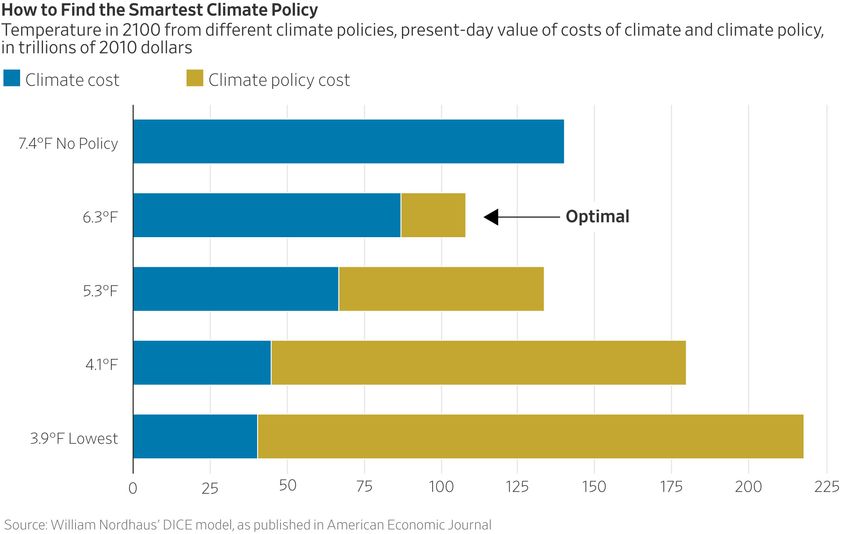
(p. A19) The U.N. estimates that even if no country does anything to slow global warming, the annual damage by 2100 will be equivalent to a 2.6% cut in global gross domestic product. Given that the U.N. also expects the average person to be 450% as rich in 2100 as today, that figure falls only to 434% if the temperature rises unimpeded. This is a problem, but not the end of the world.
That means we don’t have to panic but instead can decide policy rationally. Economist William Nordhaus won the Nobel Prize in 2018 for his work on effective climate solutions, and the chart nearby shows the outcome of his model to find the optimal climate policy. His crucial point is that the damage global warming inflicts aren’t the only costly part of climate change; climate policies also create significant economic harm. Since we have to pay both costs, his model aims to minimize their sum.
. . .
That model shows that the optimal policy mix would be one that slows the average temperature’s rise so that by 2100 it only reaches 6.3 degrees. That’s the option that minimizes the total damages from climate change and climate policies.
. . .
. . . carbon taxes aren’t the only smart way to ameliorate climate change. There are two other effective solutions.
The first is innovation. If research could drive the cost of one source of clean energy below that of fossil fuels, consumers would switch with no prompting.
. . .
The second is economic growth. Just about every problem, including the dangers of global warming, are easier to deal with when people are more prosperous.
For the full commentary, see:
(Note: ellipses added.)
(Note: the online version of the commentary was updated November 10, 2021, and has the title “A Reasonable Alternative to COP26 and Preaching Climate Doom.”)
The survey mentioned above is reported in detail in:

